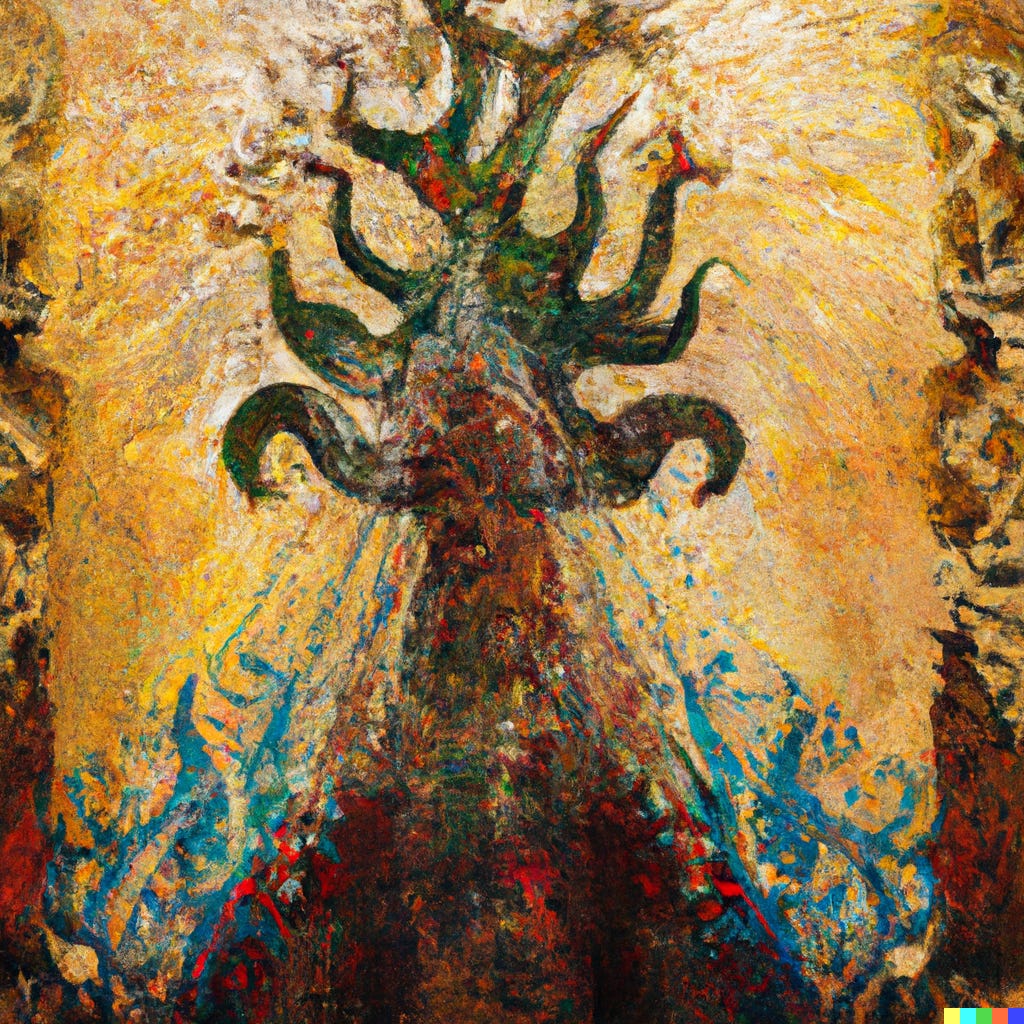Creativity
Art is the elimination of the unnecessary.
-Pablo Picasso
Raw intelligence isn’t rare. Intelligence is one of many traits that can lead to output. Talent without skill is unfortunately common. The inputs are nice to have, but the output is what matters. I respect wisdom and creativity. Wisdom comes from knowledge and experience (i.e. deliberate practice). Creativity is its own beast.
In Creativity by John Cleese, he says the source of all creativity comes from utilizing both our conscious and unconscious mind. First, we must allow our unconscious mind to roam free to spew out wild ideas. Second, use our conscious mind to filter those ideas. Third, let our unconscious mind roam free around those filtered ideas. Narrow the filtered ideas with our conscious mind again… rinse and repeat until we have something worth sharing.
Our conscious mind narrowing is a similar concept to the writing advice of “kill your darlings”. Except it’s not a line or a scene, it’s at the macro phase of creation. John Cleese’s process applies to everything from creating a new business line to composing a musical to writing a novel. Creativity is a horizontal framework.
Writing code has parallels to writing a novel. If an editor is new to a novel, they won’t understand how altering a paragraph in one chapter may have drastic consequences to the rest of the chapter, other chapters, or the entire novel. Similarly, if an engineer is new to a codebase, they won’t understand how lines of code in one area affect the greater codebase. Writing requires intense creative problem solving.
Engineers have frameworks to explore creative thinking, e.g. engineers love min/maxing— you say gossip is bad, but what if no one gossiped? Then bad actors would get away with horrible things. A reference check is asking a former co-worker to gossip. But what if everyone gossiped all the time? Then we’d never get anything done. There’s an optimal amount of gossip within an org/society and it’s not 100% nor is it 0%. Min/maxing is a framework to explore concepts.
Like all smart creatives, the best engineers are curious. They’re curious how the world works and why it works that way. What if it worked differently? Getting meta, how can I better tap into my creativity?
Many are more creative at night. Especially when tired, it’s easier for the mind to wander. My best ideas come when I’m about to fall asleep. Thomas Edison, though I’m not a fan of how he treated people (especially Nikola Tesla!), would nap in a chair on top of a metal plate. He’d hold ball bearings in his hands so as soon as Edison dozed off, he’d naturally drop the balls on the metal plate making a crashing sound that jolted him awake. He did this to tap into his unconscious thinking.
Great unconscious ideas also come while doing routine activities, like bathing as Archimedes experienced. It’s our unconscious that is multi-tasking and problem solving using all our previous conscious reasoning.
Leveling up our creativity muscle is time worth spending. Creativity leads to creation. Added bonus— it’s fun! Explore, experiment.

